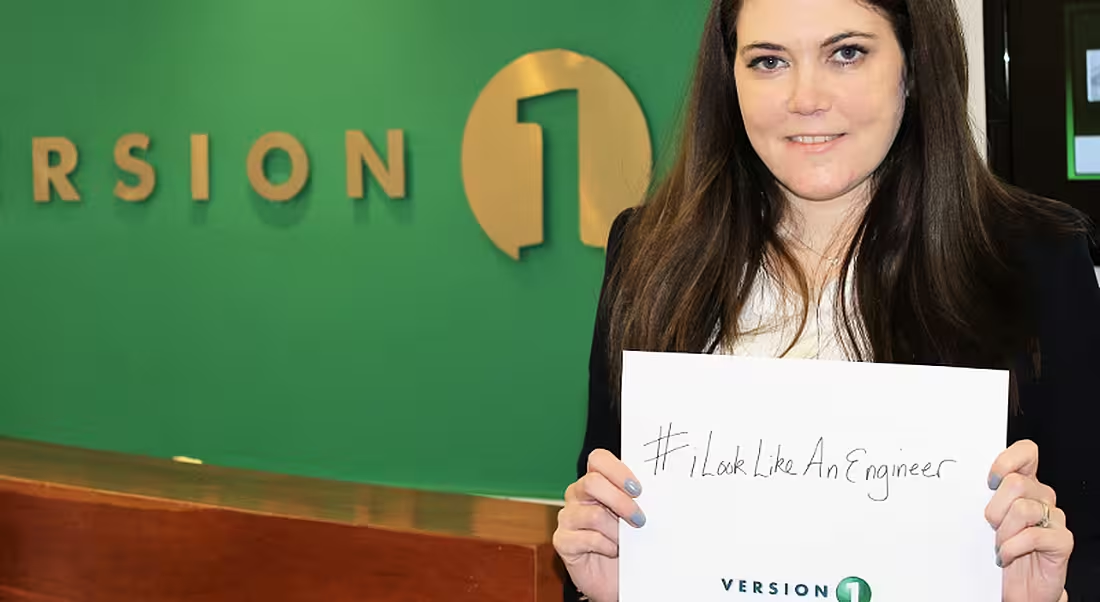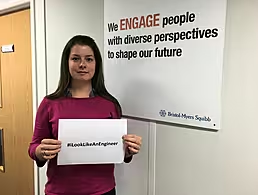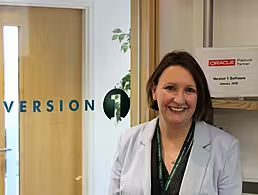For many, there’s a particular stereotypical image of what an engineer is – white and male. The #iLookLikeAnEngineer movement seeks to show that there’s diversity within the industry. Just ask Victoria Kenny, an engineer at IT services company Version 1.
Started last summer by engineer Isis Anchalee, #iLookLikeAnEngineer was born out of backlash Anchalee received when internet commenters accused her of not looking like an engineer after she took part in an ad campaign for the company she worked for.
What started as a simple hashtag was soon a globally-trending phenomenon that, over eight months later, is still going strong.
Anchalee, who will be speaking at this summer’s Inspirefest in Dublin, is in the process of setting up and launching a website to continue the movement’s growth.
But, of course, movements like #iLookLikeAnEngineer aren’t just about reach or popularity, they’re about the people – people like Victoria Kenny, Version 1 engineer, who spoke to us about her experiences in the sector.
What made you want to get into engineering?
I was selected to attend a programme during Transition Year aimed at encouraging women to pursue a career in engineering. As part of the programme, I attended Dublin Institute of Technology (DIT) one day a week, where I was introduced to the content of some of the courses they had to offer.
The programme was very diverse, and included lectures and hands-on practical tasks like building a brick wall. I was really drawn to engineering-based courses as a result of this experience.
I did have to convince my career guidance teacher that the fact that I had an aptitude for science did not indicate that I should be a nurse, but I got there eventually.
Are people surprised when you tell them what you do for a living?
Yes, all the time. I have had people not believe me or, on occasion, show a hostile reaction.
I do dread the question. Sometimes I find the surprised or perplexed reaction funny; other times I find it insulting. It depends what mood I am in – typical woman!
How does it feel to be working in an industry where you’re in the minority?
At times, it can be intimidating and I do feel outnumbered.
I find it is harder to get my voice heard, and you have to prove you are right a lot. People assume that they should check with a ‘real engineer’ before taking your advice. This is most people’s initial reaction but, as you build relationships and trust, it occurs less often.
Over the last 10 years, things have improved greatly. I have gone from being the single female developer on a team to not only having other female developers on my team, but also a female manager, which bodes well for future diversity in the industry.
What needs to happen to make engineering more attractive to a broader variety of people?
Based on my own personal experience, I think change needs to start in secondary schools.
Some secondary schools don’t even offer engineering subjects to their students. If the idea of engineering as a career is put into the mind of secondary pupils, and they are encouraged to push the boundary, the result will be that their minds will be opened to an industry they may have felt was closed to them.
What advice would you give to others who don’t fit the engineer stereotype, but want to pursue engineering as a career?
My advice would be to go for it. If you are good at your job and show an aptitude for engineering, nothing should stop you from achieving your goals.
Be prepared to meet some obstacles. But if you ignore the fact that you don’t meet the stereotype of a typical engineer, others will be forced to ignore it too.
Inspirefest is Silicon Republic’s international event connecting sci-tech professionals passionate about the future of STEM. Join us again from 30 June to 2 July 2016 for fresh perspectives on leadership, innovation and diversity. Book your tickets now.
Looking for tech jobs in Ireland? Check out our Featured Employers section for information on companies hiring right now.




